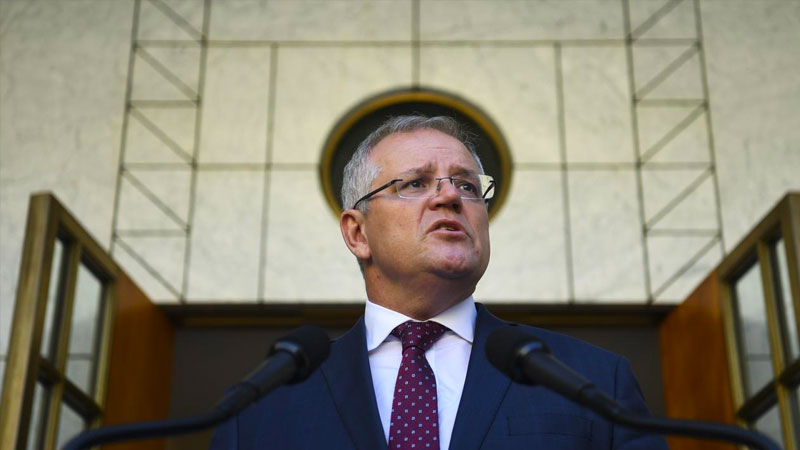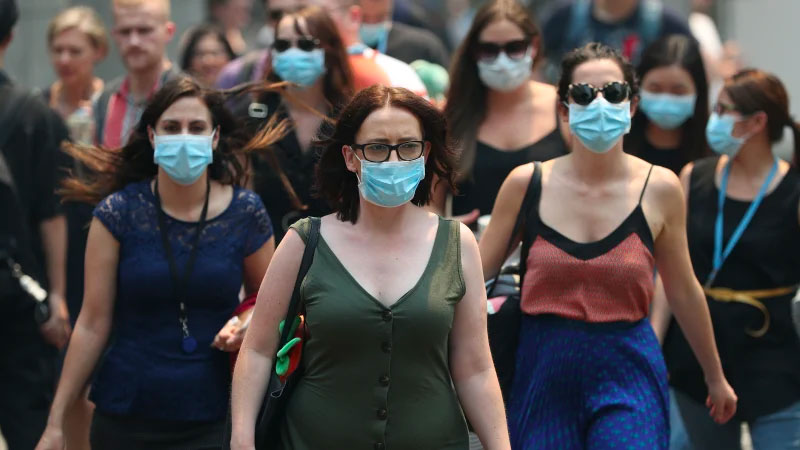Federal, State Governments Plan Further Coronavirus Stimulus
Australian households, businesses and investors are bracing for a sharp economic downturn in the face of the new coronavirus pandemic—with federal, state and territory governments drawing up further policy measures and urgent economic packages.
Less than a week after unveiling a $17.6 billion stimulus package to try to prop up business and boost consumption, the federal government is preparing a second round to offset the damage being done to the economy by the coronavirus pandemic.
The government is now eyeing fresh policy measures, of which it says will be more of support than stimulus, targeted at the businesses most at risk of collapse, including the hospitality and tourism sectors.
It intends to pass both tranches of its support package when parliament sits next week.
At a state level, the New South Wales government has launched its own $2.3 billion package, a third of which is exclusively dedicated to bolstering the state's health system, while the remaining funds will be spent in tax cuts and measures to support jobs.
“This package works hand-in-hand with the recent moves by the Reserve Bank of Australia and the Federal Government,” NSW premier Gladys Berejiklian said.
“It will provide more resources to help slow the spread of this virus and boost treatment for those people in our community who need it most.”

The rollout includes payroll tax exemptions for all businesses with payrolls of up to $10 million for the next three months as well as waiving a variety of fees and charges for those in the hospitality sector.
Almost $700 million has been earmarked to ramp up COVID-19 testing, establish clinics and doubling intensive care capacity.
The Queensland Government will find $500 million in its existing budget to offer interest-free loans to prevent local businesses from collapsing during the coronavirus crisis.
Similarly, the West Australian government has announced an economic stimulus package worth $607 million, $402 million of which is being directed at households.
Small to medium businesses with a payroll of between $1 million and $4 million will receive a one-off grant of $17,500.
“We are in uncharted territory and there’s no doubt our economy is going to feel the effects of Covid-19,” WA premier Mark McGowan said.
“For the first time in 16 years, household fees and charges will be frozen, providing relief and certainty to each and every Western Australian.”
More states and territories are looking to introduce stimulus packages of their own to target specific industries and sectors at risk.

The number of COVID-19 cases across the globe now exceeds 181,000, with 7,126 deaths, including five in Australia.
Nationally, Australia is tightening its borders, with Morrison on Sunday ordering everyone arriving from overseas to self-isolate for 14 days.
There is also a ban on non-essential social gatherings of more than 500 people, though not applying to public transport, work or schools.
Ratings agency Moody's Investors Service outlook for the rated Australian states and territories remains stable.
“The stimulus measures announced by Australian states to address the significant economic fallout from the coronavirus will further challenge budgets in 2020 and drive debt burdens higher.
“However, under our baseline scenario, the increased spending—focused on protecting jobs, replacing income, stimulating consumption and labour-intensive capital spending—is manageable.”
Polcy makers in neighbouring New Zealand have also announced a spending package equivalent to 4 per cent of the national GDP.
The $12.1 billion (A$11.9 billion) package includes wage subsidies, bolstering the healthcare sector, more money for low-income families and those on social welfare, and changes to business tax.














